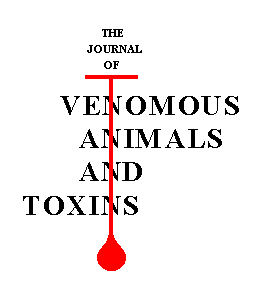Lethal Toxin Neutralizing Factor (LTNF), isolated from opossum with having molecular weight 63 kDa, is a potent antidote for animal, plant, and bacterial toxins. This communication deals with the identification of a small fragment of LTNF eliciting the anti-lethal activity of animal, plant, and bacterial toxins when tested in mice. Purified LTNF was treated with trypsin to cause fragmentation at the arginine and lysine sites. The fragments were separated by high-performance liquid chromatography (HPLC) and were tested against anti-LTNF for binding affinity by enzyme-linked immunosorbent test (ELISA). The fragment showing the most binding to anti-LTNF was sequenced. Synthetic peptides consisting of 15 and 10 amino acids from the N-terminal were constructed and designated as LT-15, with amino acid sequence Leu-Lys-Ala-Met-Asp-Pro-Thr-Pro-Pro-Leu-Trp-Ile-Lys-Thr-Glu, and LT-10, with sequence Leu-Lys-Ala-Met-Asp-Pro-Thr-Pro-Pro-Leu. Death due to intramuscular (IM) injection of predetermined lethal doses of toxins derived from animal, plant, and bacteria was prevented treating the mice with synthetic peptides LT-15 and LT-10. The lethality was inhibited when the treatment was given before or after the toxin injection. Synthetic LTNF can be made in abundance and should become a universal therapy against intoxication caused by animal, plant, and bacteria.
Lethal Toxin Neutralizing Factor (LTNF); opossum; Crotalus atrox; Naja kaouthia; Daboia russelli; Oxyuranus s. scutellatus; Androcetonus australis; Apis mellifera; ricin; Ricinus communis; botulinum; Clostridium botulinum



